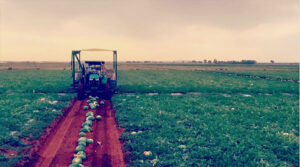 Organic food production is one of the fastest-growing industries in the US. Even during the Covid-19 pandemic, this sector continues to see positive growth because of strong support from advocates and health enthusiasts in the North Carolina region. People in this state are dedicated to ensuring that agriculture thrives so that they can enjoy organically-grown food.
Organic food production is one of the fastest-growing industries in the US. Even during the Covid-19 pandemic, this sector continues to see positive growth because of strong support from advocates and health enthusiasts in the North Carolina region. People in this state are dedicated to ensuring that agriculture thrives so that they can enjoy organically-grown food.
This type of food production relies on different farming practices such as green manure, crop rotation, compost, and pest control through biological means. Here, lots of work needs to be done manually, and the crops are cultivated using little or no synthetic fertilizers, herbicides, and GMOs. Organic farmers grow multiple types of crops on a single field to encourage biodiversity. This increases soil health, which is one of the main factors that determine crop yield.
Organic Products Certification
Using organic agriculture, the produced food is healthy, and the environment is spared from widespread contamination of chemicals.
As an organic farmer wanting to sell your goods and label them as organic, you need to have a legal certificate of registration from an authorized body. This is because specific US laws and regulations govern all organic food. That is why any food that is legally sold as “organic” must have a certain standard and comply with industry regulations.
Remote sensing and satellite data can be very beneficial in this scenario because they can be used to assess whether crops or fields have been certified.
One of the most important components of integrated pest management is monitoring. This is the frequent inspection of crops and fields for pests, diseases, water levels, or any signs of stress. It helps farmers to accurately identify pests and injuries to crops, monitor crop growth, and overall observation of the field. Also, farmers can use these monitoring systems to catch crop diseases in the early stages and intervene with the right techniques to stop the spread. Here, they have the time to determine which pest or disease control method, including the use of pesticides or natural enemies, will be suitable for the field and when to implement it. Check out https://eos.com/products/crop-monitoring/ for detailed information concerning crop monitoring.
Benefits of organic agriculture
The main idea behind organic farming is to enhance fertility and the nitrogen composition of the soil using cover crops, composts, and manure. This will significantly reduce fossil fuel use to make synthetic fertilizers. It also makes sure that our environment and surrounding ecosystems are not destroyed by the use of pesticides and other toxic chemicals. The farmers also use leguminous and cover crops to stabilize the soil preventing erosion by wind and rain. Organic farming enhances the soil’s organic matter level and CO2 sequestration into the soils.
Organic farming increases the soil’s water retention ability, helping them survive longer in cases of prolonged drought. Also, the crops will be resistant to harsh climate conditions because they are healthy and strong.
This type of farming also augments the agroforestry production systems offering more ways to sequester carbon. It also aids the climate change movement because farmers use only organic and traditional methods to increase soil fertility without CO2 emissions.
Organic farming does not cause water pollution because the farmer-owners do not use pesticides and synthetic fertilizers, which can run into surrounding water bodies. Also, heavy tillage is not used, therefore more carbon sequestration.
As the people become more aware and conscious of their environment and climate change, they turn to modify their actions leading to better outcomes. Organic farming was the main type of agriculture practiced by our ancestors. However, big corporations brought in heavy machinery and other practices that exponentially increased CO2 emissions with the advent of industrialization. With global warming a constant threat to human society, organic farming has started gaining attention as one of the ways to slow climate change and create a better future for the next generations. It aims at battling pests, diseases, and soil infertility with natural and organic means. All of this leads to a better environment and ecological balance.
